An interview with an African American Coptic Convert
Regina, who prefers to go by her baptized name Monica, is a Coptic convert with a kind voice and wise eyes. She works in the public health field where she helps people control their diabetes through stress reduction and stress management techniques.
She is also a black woman, with caramel skin and African locks. We had met each other before at a bible study, but we came friends when I found out she was friends with my mom, and we got even closer after we went on a service trip to Egypt.
Growing up among Egyptians however, I was disappointed but not surprised to hear that she had experienced several instances of racism from our Coptic brothers and sisters when she first came to the faith.
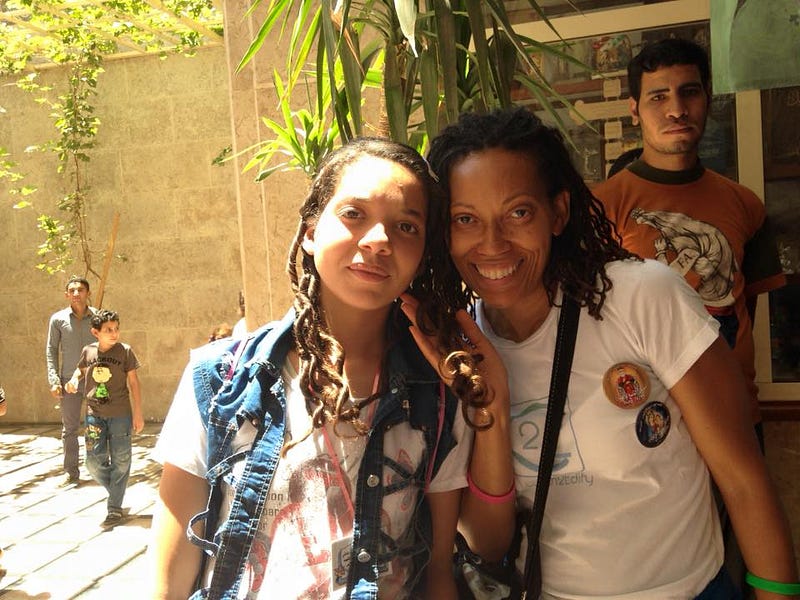
Five years have passed since her conversion and Regina has become a pillar of our community, but there are still people out there in the church who have no idea how badly their actions and judgement have hurt non-Egyptians.
What brought you to the Coptic church?
I was looking for the African roots of Christianity. In Acts 8:27 I found one of the first conversion stories. An Ethiopian Jew received the Gospel from Philip and was baptized. I assume he then evangelized the rest of Ethiopia, which is one in the same with the Coptic church. In my research, I found that this church was what most closely paralleled the early Christian Church. I’ve always been an inquisitive and curious person. I have a Protestant Baptist, Messianic and Pentecostal background, I’ve practiced other faiths, but I’ve always been fascinated by the doctrinal politics that drove discussion. It’s interesting that I didn’t find what I wanted when I came to the Coptic church, but I found what I needed.
You know, you guys are incredibly blessed to have such a rich foundation and you don’t even realize what you have. It amazes me that many people don’t appreciate the spiritual depth that is available in our church. I am still in awe every time I go to church and bible study. Just the amount of information, the spirituality, the Desert Fathers, the martyrs, the saints. I had never heard about any of these individuals in our Christian Ancestry!
And while I encourage exploration, when people say they’re bored I’m shocked, I mean, I drove 80 miles a week twice a week to St. John to go to church! I was spellbound, and many times, in tears after Abouna Daniel would teach a lesson or share a homily. I love the culture and the Coptic songs.
When did you decide to convert? How was the experience?
It took me 18 months. I wanted to make sure that this is what I wanted to commit to. In 2013, I decided to get baptized, and my life was transformed. I learned so much about silence, stillness, serenity, meditation and being in God’s presence. It was just such a different way of life that made me feel complete.
I had a very powerful prayer life before, but the idea of silence and listening to God was not a component. I loved the idea of being still so much that 3 years ago I went on a silent retreat by myself for three days where I didn’t speak once.
What was the baptism like?
Oh my goodness, let me tell you. Literally the best experience in my life I’ve ever had. I’m not exaggerating. To be honest you guys are robbed of the experience because you had it as babies. But the holy oils, the holy water, the prayers and the declarations. It was the most sacred experience ever. I had a friend record it. I still listen to it from time to time, to take me back there, and remind me of my transformation. I can remember that day like yesterday. I also truly appreciate the time and seriousness the priests dedicate to it.
What was it like the first time you entered the church as an Orthodox woman?
It was a privilege. I felt like I had really become the bride of Christ.
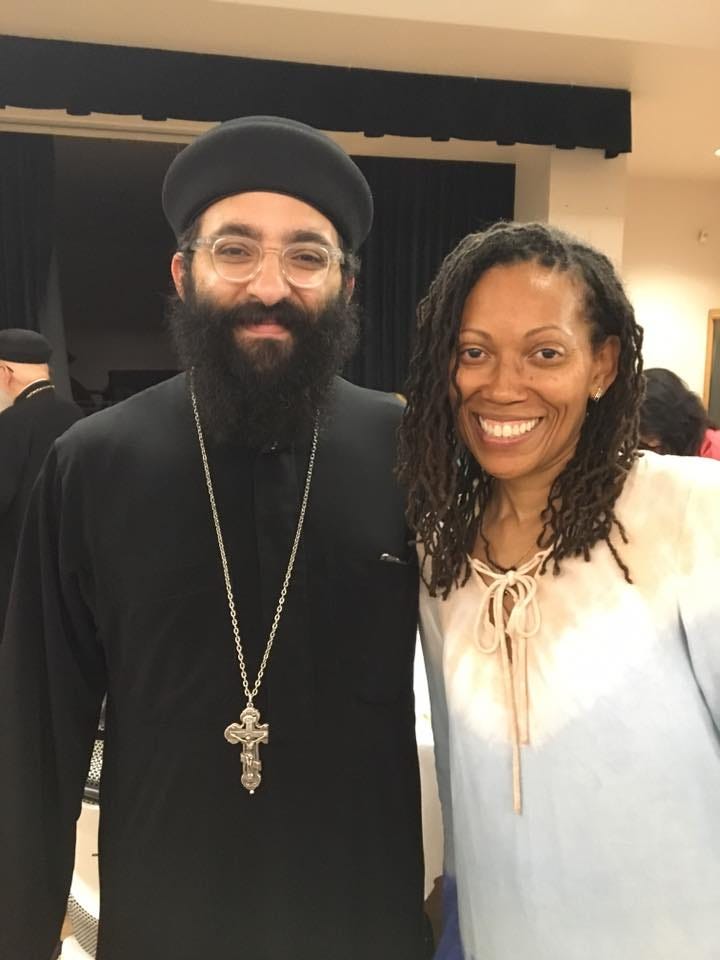
How has your background influenced you to make the decision to convert?
I was ready to go deeper. I had a burning desire to live a consecrated life, like the desert fathers. I was in awe of the insight.
When I first entered, I didn’t understand why people were so quiet and reserved, compared to the charismatic churches that I am most familiar with. But I get it now, they want us to focus on God in a way that allows our spirit to be still and hear what He has to share.
Did you have any bad experiences with the congregation? If so, how did it make you feel?
My experience with many of the parishioners was mixed. I obviously looked different than 98% of the rest of the population. The older congregation were not approving. They wouldn’t even give me the sign of peace during the liturgy (where we take blessings from each other’s hands). One lady was even like, “can I help you with something?” kind of like, “what are you doing here?” I also had one lady come and tell me that any one who wanted to attend church either had to learn Arabic or Coptic, and should not expect an English translation. She even told me that she had nightmares where the Church was completely in English.
So let’s just say I did not have the warm and fuzzies okay? It was very hurtful. However, there is a Pentecostal minister named William Seymour whose story I read once. He was a black man from the south who came to a sermon once to hear the word of God, but they wouldn’t allow him in since it was an all-white congregation. But instead of leaving, he waited outside in the hallway to listen to the sermon, and he changed and received the word of God because of it. I was inspired as I read his story, and I was like “I’m not going to let the rude people stop me from receiving God’s messages for me.” No matter what the racist members think or say, it is God’s word and God’s house. I am God’s daughter and He welcomes me.
There were many others that were extremely loving and went the extra mile to make me feel comfortable and included. I love and appreciate them for sharing God’s heart.
I’ve made many friends now, and I’ve even shared meals with them outside of the church. Two sisters drove 100 plus miles to see my baptism, which made me feel so special because I had no family that supported me or understood why I was doing this.
What also helped me understand and overlook the hurtful behavior was the fact that these people come from a history of persecution. They are weary of people who look different and are rightfully suspicious of strangers and their intentions.
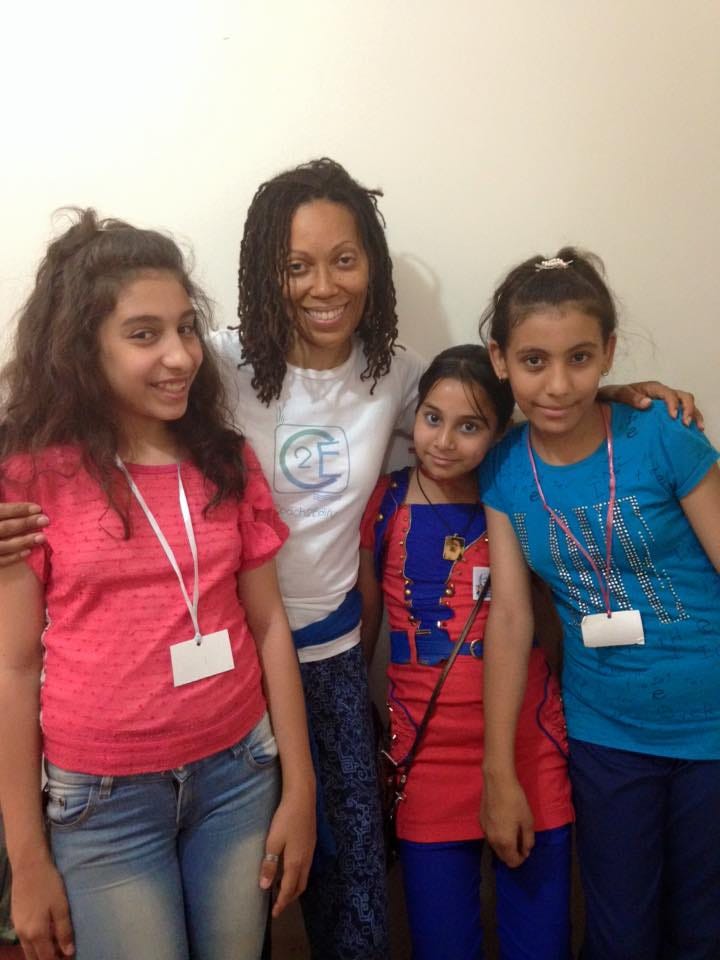
Why do you think people might have treated you like that?
I think it was because of several factors. First, I realized that most members are related. As I became more involved I saw that they’re all related and came from Egypt together. Also, the Coptic church is not mission-focused, it’s more about protecting the community, and they don’t want to lose their culture, like that woman who told me that she has nightmares about an english liturgy.
They are also the products of a colonized mind. They deny their brown skin and curly hair. Many are shocked to see how I embrace the way God created me.
Don’t get me wrong, these things happen in African American culture too. The slave masters taught them to hate each other and hate their skin color. This is one of the issues I have. It still bothers me when I see Saint Mary with blue eyes and blonde hair. I’m like really? That is a historically inaccurate illustration of the Blessed Mother. I am in an African church and people don’t want to embrace the truth.
Even my abouna said that there is virtually no other ethnic group that worships a god that doesn’t look like them. For people to go so far through a learned behavior of self hatred to deny themselves is just sad.
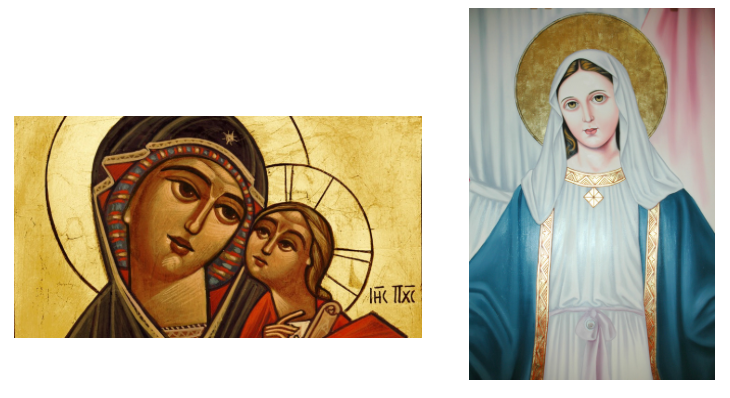
But I’ve spent many years learning to love myself. I celebrate and love all cultures, but I’m not going to deny myself. Because it’s subtle. We never realize the brainwashing and indoctrination involved.
How long have you been orthodox now? Do you still get treated differently?
It’s been about five years now. Most people know me now and people treat me better. Even when they don’t recognize me, when they see me serving, I can see them relaxing. I feel like I’m finally a part of the family.
It’s interesting that I didn’t find what I wanted when I came to the Coptic church, but I found what I needed.
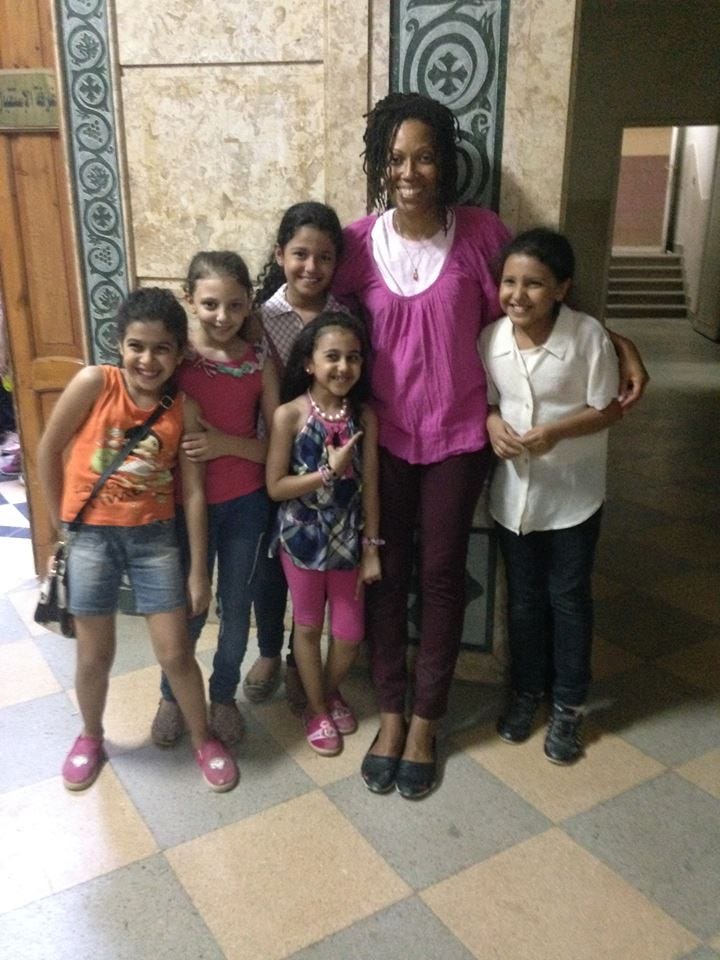
What is your advice to those people, and/or what is your advice to their children, and/or what is your advice to the church?
I stayed despite the treatment, but not everyone has the same fortitude.
The Coptic church may not be for everyone. But there are people like myself looking for something richer and more fulfilling. It’s not fair to withhold sharing our beauty with others. So don’t judge outsiders too harshly. If someone is genuinely seeking, let them attend the bible study. God loves us all; he created us all different on the outside, but the same on the inside.
We all desire to be loved, we all experience pain, we all need each other. Allow the Holy Spirit to help you practice discernment. Don’t be suspicious nor naive. Don’t dislike people because they look different, or keep people out of your click. I understand maintaining a strong church community is vital, but evangelism is equally important. Street ministry may not be the focus, however when people voluntarily desire to learn about our church, they should not be rejected.
When I first started coming, Many of my friends were asking, “I don’t understand, why would you go to a church that’s racist?” I stayed despite the treatment, but not everyone has the same fortitude. So be careful how you treat people, Jesus said that people will know we are Christians by the way we love one another. We need to represent God well.
If you would like to contribute to the Coptic Voice, please send an email with your bio and topic of interest to CopticvoiceUS@gmail.com



